Faculty Members
FACULTY MEMBERS

ABE Masato
Assistant Professor
Faculty
Complex Systems, Mathematical Biology, Network Science
Using quantitative data and mathematical models to study complex systems
Phenomena that consist of various elements working together are called “systems.” In my research, I combine mathematical models and quantitative data to understand a wide range of systems from theoretical and experimental standpoints. Elucidating the laws underlying these systems will enable us to reach a deeper understanding of human beings and society, potentially enabling us to predict states in the future as well as to control these states to produce more favorable results.
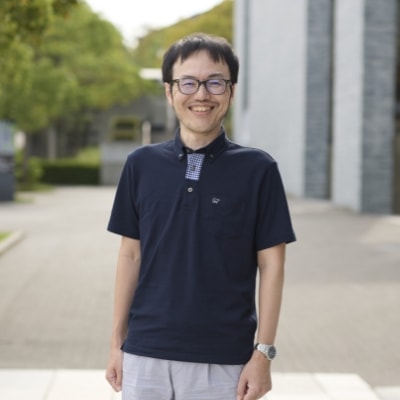
FUKAGAWA Daiji
Associate Professor
Faculty
Algorithms
Theoretical analyses of algorithms and their practical implementation.
My research interests focus on the theory of algorithms and the computational complexity of mathematically formalized problems. In particular, I focus on combinatorial optimization problems such as tree pattern matching and graph data mining. Currently, I am also interested in how to easily integrate such theoretical formalizations—or models—with empirical knowledge and techniques. I teach students how to evaluate, improve, and renovate algorithms, as well as how to realize them as running software.
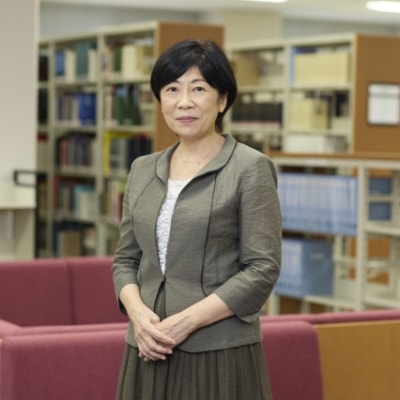
FUKUDA Tomoko
Professor
Faculty Master's Program Doctoral Program
Japanese Literature
Research on manuscripts of Japanese classical literature and their expressions
I study written expression in Heian period kana literature such as waka and narratives. My literary research is based on accurately compiled differences between various versions of written expressions and empirical data aggregated from a philological standpoint. I teach students specific methods necessary for logical inquiry into the nature of literary works.
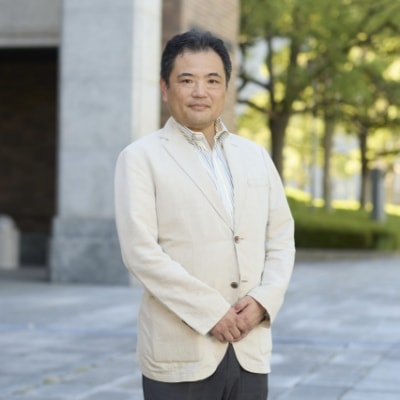
HATANO Kenji
Professor
Faculty Master's Program Doctoral Program
Data Management, Information Extraction and Utilization in Big Data Era
Development of technology for effective storage, search and use of big data
Regardless of the academic or industrial field, managing and utilizing enormous amounts of data is an indispensable technology in today's information society. Now that we have entered an age in which various phenomena can be converted into data, that data can be used in various ways to enrich our daily lives. My research interests are in data engineering—a subject dealing with data management that makes it possible to enrich human life—and service informatics, which leads to using such data and extends to the surrounding academic fields.
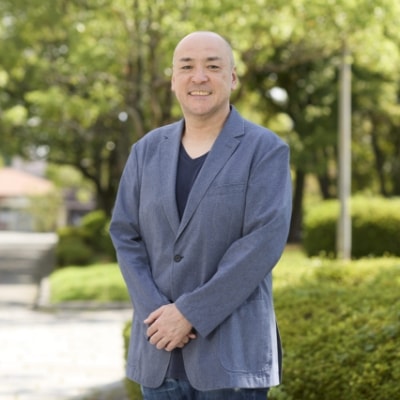
HOSHI Hidehito
Associate Professor
Faculty Master's Program
Linguistic Theory, Syntax
Descriptive, theoretical, and experimental syntax of natural language
I work on the development of theoretical models explaining various syntactic phenomena within natural language. Furthermore, I examine the validity of theoretical models by experimentally testing the hypothesis about linguistic competence and performance.
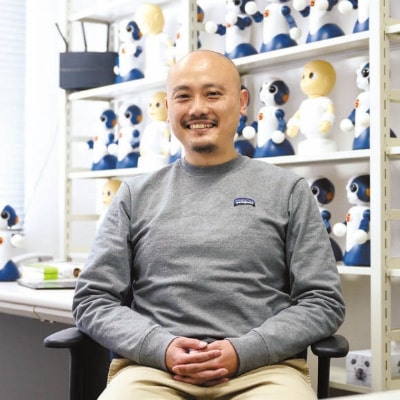
IIO Takamasa
Associate Professor
Faculty Master's Program
Social Robotics, Human-Agent Interaction
Study of how robots can affect human recognition and behavior
We humans recognize bipedal-walking robots and pet robots as social beings with which to interact and nurture relationships. I aim to deepen our understanding of the influence that robots can have on human recognition and behavior, and explore where a particular type of robot should be used so that it can perform at its best. I hope to contribute to solving problems faced by human society by shedding light on how robots can connect people with people, and people with society.
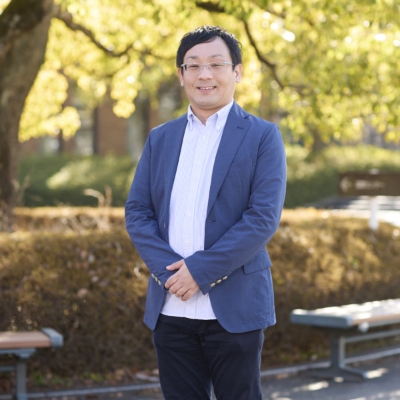
IMOTO Keisuke
Associate Professor
Faculty
Intelligent Informatics, Statistical Science, Acoustics
Research on acoustic technologies to make society a better place
My research involves developing artificial hearing devices that can understand and interpret sounds—including speech, music, and environmental sound—as well as generative AI that is capable of creating any sound. One example is a sound monitoring device for infants or the elderly. Such a device would help create a better environment for child-rearing and improve the quality of life for the elderly. I hope to contribute to making society a better place by studying the sounds present in our daily lives.
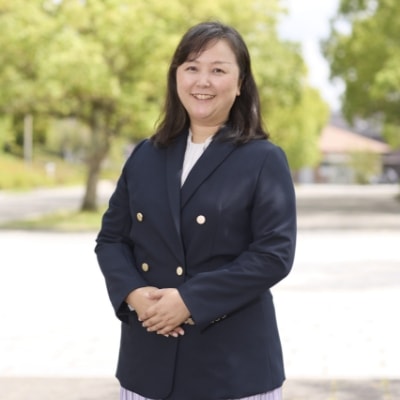
ITO Noriko
Associate Professor
Faculty Master's Program
Functional Linguistics
Modelling Japanese grammatical and semantic resources applicable to large corpus analyses
My current research interests are focused on description of Japanese language both in written and spoken forms from a systemic functional perspective. I have been investigating a computational model of grammatical and semantic resources that can analyze a large corpus of data, allowing us to improve information retrieval and conversational agent systems.
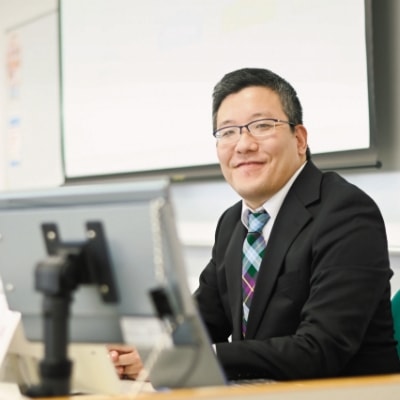
KAMBARA Tomoya
Assistant Professor
Faculty
Computer Science, Databases, Multimedia
A system for recommending the optimum hashtag when posting an image on social media
Did you know that studies have found that on Twitter, tweets with more hashtags do not attract more views? This means that we now have to identify the individual hashtag that will convey a tweet’s appeal to its maximum advantage. The goal of my research is to develop a system that recommends the optimum hashtag when posting a tweet with an image attached. I hope to create a system that helps extend the reach of tweets that is easy for anyone to use.
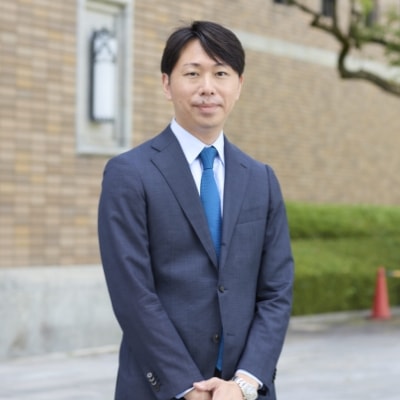
KAWASE Akihiro
Associate Professor
Faculty Master's Program
Digital Humanities, Statistical Science
Digital humanities: utilizing computing in the pursuit of humanities research
I aim to empirically clarify the structures by which musical phenomena spreads and changes from a quantitative viewpoint. I utilize concrete, developing technology that supports discoveries and analogies about the characteristics and effect relationships hidden in culture, and create structures that allow us to understand phenomena that are behind the data. The knowledge and methodologies I provide to carry out each project are not limited to music or classics: they are highly versatile and can be applied to other fields, such as fine arts, iconography, social sciences, and geopolitics.
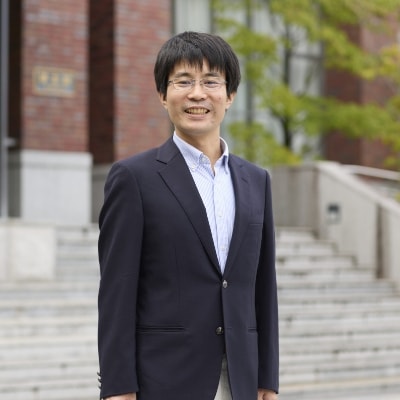
NAKANISHI Yoshinori
Associate Professor
Faculty Master's Program
Statistical Science, Statistical Physics
Formulation of research methods in scientific fields from a statistical perspective
The purpose of my research is to develop statistical methods to extract necessary information and remove noise from measured data, mainly in the field of physics, and offer such methods to researchers. I aim to establish scientific methodologies to replace the conventional approach—which depends on the intuition and experience of the researcher—so that anyone, whether specialist or otherwise, can engage in research activities.
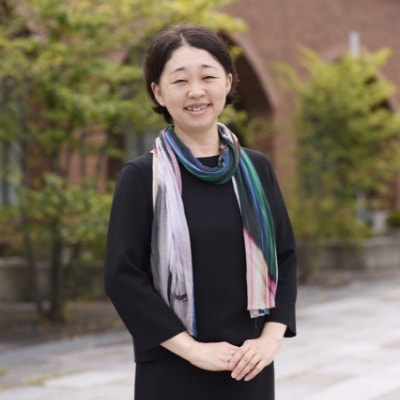
NAKAYASU Mari
Associate Professor
Faculty Master's Program
East Asian Art, Buddhist Art, Iconography of Music
Research on the art of Japanese Shinto-Buddhist syncretism
My main interest lies in understanding the religions of past peoples and how they expressed their beliefs through art. My current work focuses on Shinto-Buddhist syncretic art, especially in Koyasan area, known as the center of Japanese Shingon esoteric Buddhism. I am also interested in ancient East Asian musical instruments. Although many are no longer extant, images remaining in the arts—such as Buddhist sculptures and paintings— provide us with useful hints to solve the mysteries of ancient times.
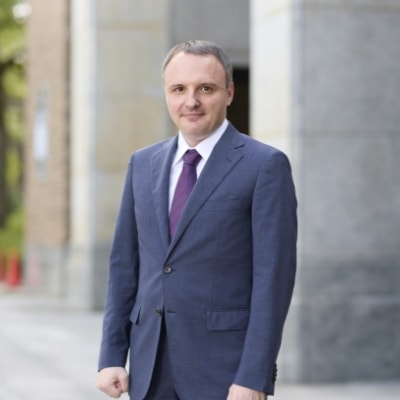
Gaetan RAPPO
Professor
Faculty Master's Program
Japanese Medieval History, Religious Studies
Japanese medieval history using the methodology of digital humanities
My research involves analyzing Buddhist texts, manuscripts and other historical documents held by temples by means of the methodology of digital humanities. Concretely, I use various tools, such as text mining, to extract specified strings of characters and wordings and compare them, drawing inspiration from similar research in Chinese and Western languages. My aim is to deepen our understanding of Japanese thought and religion as seen in historical documents from a dynamic perspective by fully applying this kind of methodology to the study of Japanese history.
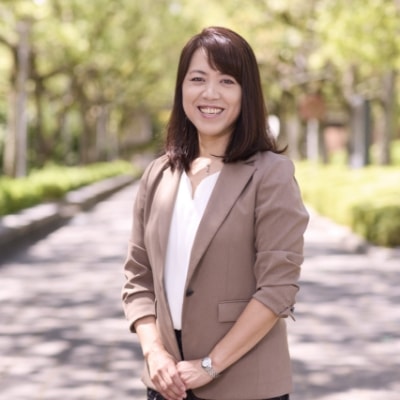
SAKATA Mamiko
Professor
Faculty Master's Program Doctoral Program
Cognitive Science, Body Mediated Information
Dynamic structure of multimodal interaction
When we hear the word "communication," we have a strong image of "language," but in fact, we communicate with others by perceiving a lot of information from non-verbal cues. My research theme is to elucidate what kind of information is exchanged through non-verbal cues such as gestures, facial expressions, posture, and movements. I am engaged in research on a wide range of human bodily movements, from everyday conversation and daily movements to performing arts such as comic dialogue and dance.
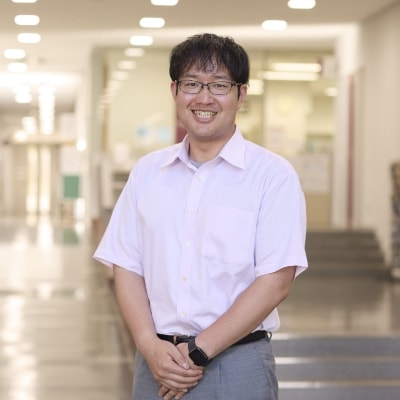
SANADA Teruki
Assistant Professor
Faculty
Sociology
Schools and education from a sociological perspective
My research consists of an objective, in-depth consideration of schools and education from a sociological perspective. I have previously used a statistical approach in studies entitled, “Social classes that utilize shadow education such as cram schools and distance learning, and their effects” and “The effects of experiencing violence in infancy and childhood on attitudes toward the acceptability of corporal punishment.” Understanding these issues from the new framework of sociology will bring to light the true status of issues concerning education and schools.
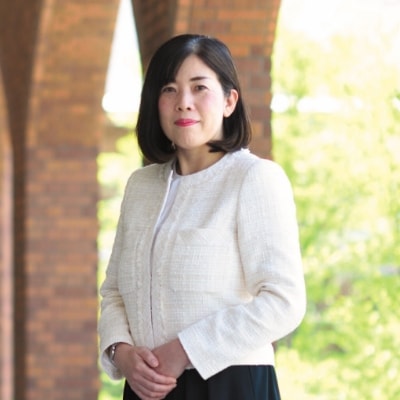
SANO Akiko
Associate Professor
Faculty Master's Program
Visual Culture, Pop Culture, Media History
Analysis of visual works utilizing the approaches of cinema studies and statistics
I digitize images from movies, animations, and other visual works to foster a scientific understanding of what these images communicate and what effects they have. My research requires—in addition to a statistical approach—an understanding of social trends and knowledge in various disciplines in the humanities, such as philosophy, history, literature, aesthetics, folklore, cinema studies, and sociology. By examining visual works from diverse viewpoints, we can shed light on the association between visual culture and society.
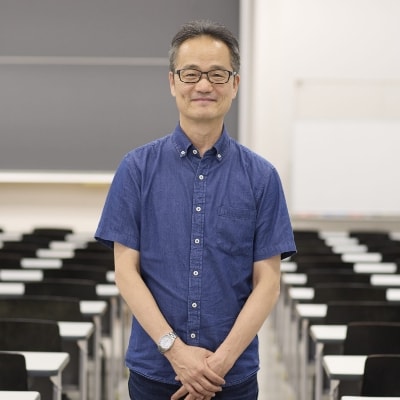
SHEN Li
Professor
Faculty Master's Program Doctoral Program
Theoretical Linguistics, Linguistic Typology
Analyses of the interface between syntax and morphology, explication of linguistic change in time and space
I specialize in the comparative research and theory construction in Asian languages, as well as the mechanism of linguistic change through language contact. I teach students how to analyze linguistic data with a linguistic method and put the results together in a verifiable way, and provide them with the practical skill of linguistic data analyses using the inductive or deductive method.
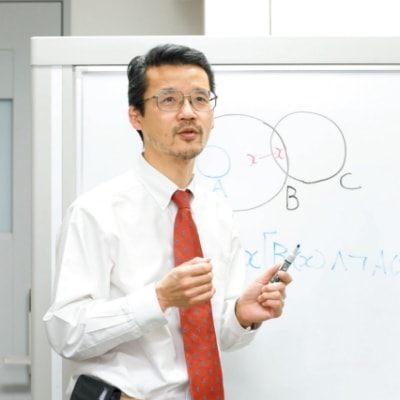
SHIMOJIMA Atsushi
Professor
Faculty Master's Program Doctoral Program
Cognitive Science, Mathematical Logic
Logical and psychological study of the cognitive functions of diagrammatic representations
I approach the issue of the functions and anti-functions of diagrammatic representations from the viewpoints of both logic and psychology. I use the method of mathematical logic to form hypotheses on how diagrammatic representations express information and how they help our thinking and understanding. The hypotheses are then tested through psychological experiments.
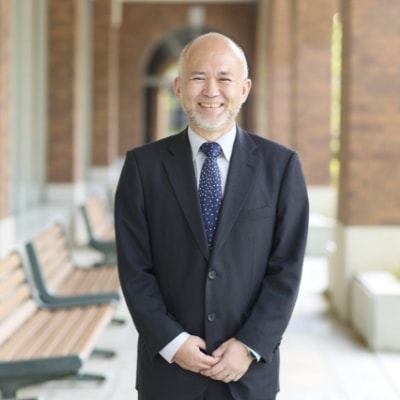
SUGIO Takeshi
Professor
Faculty Master's Program Doctoral Program
Cognitive Science, Object Recognition
Cognitive mechanisms of object recognition in cultural contexts
My recent research focuses on the cognitive mechanisms of reading diagrams such as tables and graphs. In order to read a diagram properly, we need to rely on conventional knowledge about how the diagram is constructed and how it corresponds to the external world. How we recognize objects and patterns in such cultural context is examined using a psychological method.

TAGUCHI Tetsuya
Professor
Faculty Master's Program Doctoral Program
Comparative Cultural Studies
Quantitative analysis of formation of trends, comparative urban studies
I study how the cultures of different countries are expected to be merged and reorganized in our increasingly globalizing contemporary society as well as how human cultural activities are being rewritten. I teach students how to extract behavioral data from images, music, fashion, and literature of different cultures, how to form their influential relationship, and how to compare and contrast them.
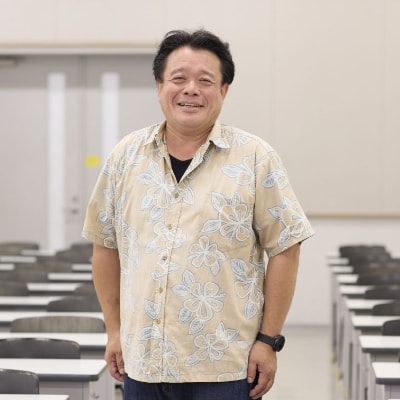
TSUMURA Hiroomi
Associate Professor
Faculty Master's Program
Spatio-Temporal Informatics, Anthropology
Ethnological and historical survey and study of human cultural heritage
Human activities consist of coordinates on the temporal and spatial axes, and each phenomenon therein is normalized by a thematic axis called behavior. I provide students with the skills to computerize various human behaviors from a phenomenological viewpoint, as well as the methodology to evaluate both the phase of spatio-temporal connection and interpret human behavior.
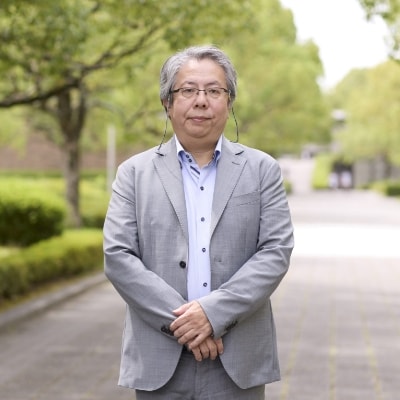
YADOHISA Hiroshi
Professor
Faculty Master's Program Doctoral Program
Statistical Science
Theoretical characterization of multivariate data analysis methods and development of a new method
My research interests include multivariate data analysis methods, social network analysis, sports data analysis, matrix decomposition-type multivariate analysis methods and symbolic data analysis methods. I teach students the theory and application of various methods of multivariate data analyses and provide them with practical problem-solving skills using statistical science.
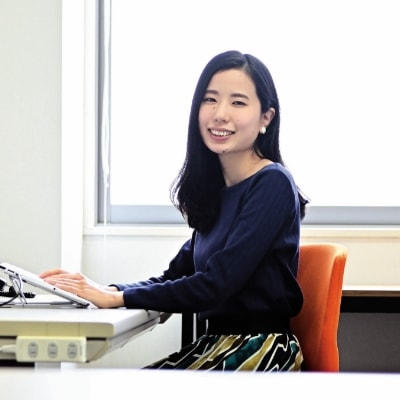
YAMAGATA Mei
Assistant Professor
Faculty
Social Psychology, Statistical Chemistry
Examining Human Psychology and Behavior Through Statistical Analysis
My research centers on the question, “Why do people hurt other people?” This research stems from a desire to unravel the seemingly contradictory nature of human beings, who are capable of harming others while also possessing a sense of morality. I conduct statistical analyses primarily through online panel surveys to quantitatively understand the abstract mechanisms of the mind. The goal of my research is to unearth clues that will lead to solutions to such constant human problems as war and discrimination.
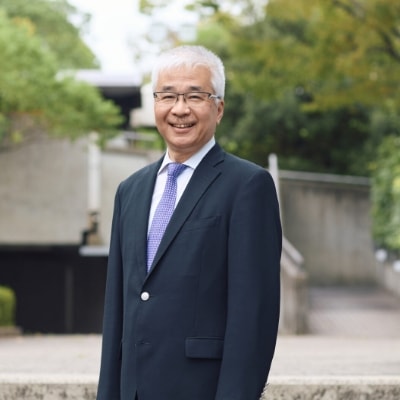
YAMAUCHI Nobuyuki
Professor
Faculty Master's Program Doctoral Program
English Linguistics, Corpus Linguistics
Research on the methodology of linguistic description and study of Japanese and English usages
I deal with the linguistic descriptions and usages for various linguistic phenomena in English and Japanese. I encourage students to utilize various corpora, seek out the best method of analysis for a variety of linguistic phenomena, and teach them the methodology of linguistic analyses for solving their respective research questions in linguistics.
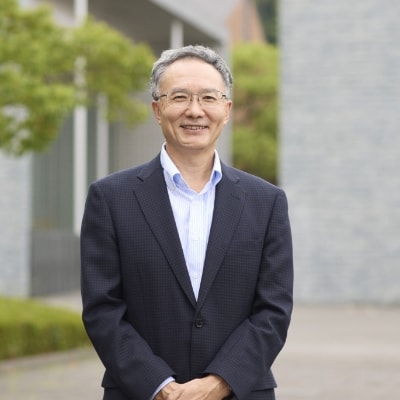
ZHENG Yuejun
Professor
Faculty Master's Program Doctoral Program
Sociometry
Development of methods for obtaining behavioral data, Quantitative analysis of cultural and social phenomena
In addition to sociometric theory, my current studies focus on various social issues and cultural phenomena including consumer behavior, pro-environmental behavior, organizational culture and cross-cultural comparison of national character and values. I provide students with methods of data science for investigating collective patterns of human behavior based on survey data.
